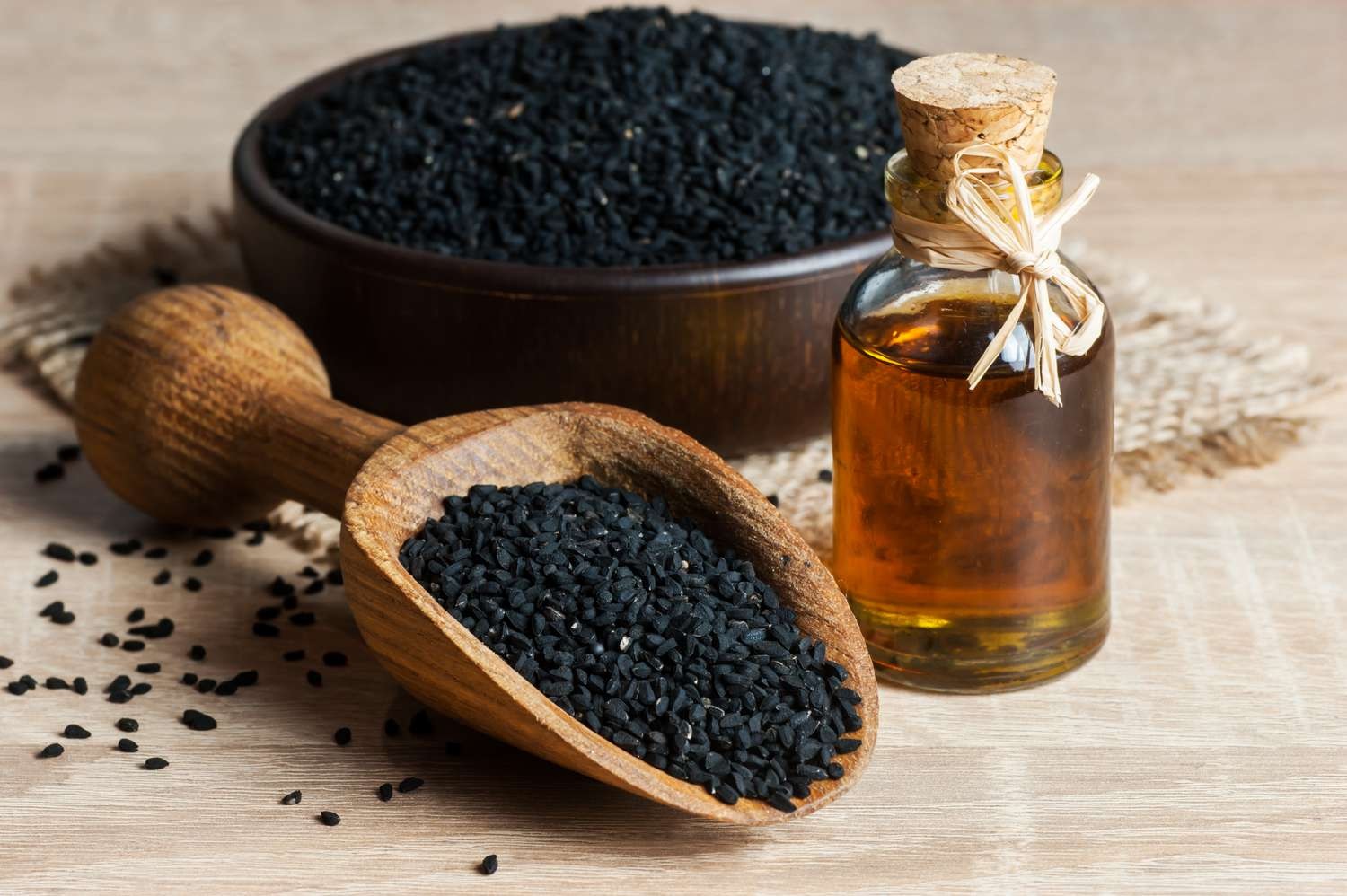Can Black Seed Oil Really Help You Lose Weight? Ultimate Look

- Should You Train To Muscle Failure Every Set? What You Need To Know - March 4, 2025
- Nutrition in a Hurry: Top Post-Workout Snacks for Active People - February 20, 2025
- 15 Healthy Meal Prep Recipes: Your Weight Loss Made Easy - February 18, 2025
Yes, black seed oil can help support your weight loss goals through scientifically proven mechanisms. Research shows that its active compound, thymoquinone, enhances metabolic rate, reduces appetite, and inhibits fat accumulation. Studies have demonstrated significant BMI and waist circumference reductions when taking 1-2 teaspoons daily. The oil promotes thermogenesis, supports fat metabolism, and improves insulin sensitivity. While it’s not a magic solution, black seed oil’s anti-inflammatory and antioxidant properties make it a valuable tool for weight management when combined with healthy lifestyle choices. Understanding the proper dosage and potential effects will help you maximize its benefits.
Key Takeaways
- Scientific studies confirm black seed oil increases metabolic rate and reduces appetite, supporting weight loss through decreased caloric intake.
- The active compound thymoquinone helps regulate blood sugar levels and enhances fat metabolism, promoting efficient weight management.
- Clinical trials have demonstrated significant reductions in BMI and waist circumference among black seed oil users.
- Black seed oil inhibits lipogenesis (fat formation) while promoting thermogenesis, helping the body burn stored fat for energy.
- Consistent daily intake of 1-2 teaspoons before meals provides optimal weight loss benefits when combined with a healthy diet.
Understanding Black Seed Oil

Black seed oil, derived from Nigella sativa (also known as black cumin), is a traditional medicinal plant that’s been used for thousands of years across various cultures. In ancient Egypt, archaeologists found black seeds in King Tut’s tomb, highlighting their historical significance. The oil’s active compounds include thymoquinone, thymohydroquinone, and thymol.
You’ll find that black seed oil‘s benefits overview spans multiple health applications. Throughout history, practitioners have used it to address digestive issues, respiratory conditions, and inflammatory disorders. The oil contains essential fatty acids, including omega-3 and omega-6, plus vitamins B1, B2, and B3, and minerals like calcium, iron, and zinc. Modern research continues to validate many of these historical uses, particularly its anti-inflammatory and antioxidant properties.
Scientific Research Behind Weight Loss
Recent studies examining black seed oil’s impact on weight loss have shown promising results, particularly in clinical trials investigating metabolic effects. You’ll find that scientific studies consistently demonstrate its potential through multiple mechanisms of action.
| Research Focus | Key Findings | Impact on Weight |
|---|---|---|
| Metabolic Rate | Increases thermogenesis | Enhanced calorie burn |
| Appetite Control | Reduces hunger signals | Lower caloric intake |
| Fat Storage | Inhibits lipogenesis | Decreased fat accumulation |
Research shows that black seed oil’s active compound, thymoquinone, supports weight loss by influencing fat metabolism and glucose regulation. Clinical trials have documented significant reductions in body mass index (BMI) and waist circumference among participants using black seed oil supplements.
You’ll need to take into account that these effects are typically observed when combined with proper diet and exercise protocols. Additionally, understanding insulin resistance is crucial for maximizing the benefits of black seed oil in a weight loss regimen. Resources from the National Institute of Diabetes and Digestive and Kidney Diseases (NIDDK) can provide valuable insights into insulin resistance https://www.niddk.nih.gov/.
Active Compounds and Metabolic Effects
Understanding the active compounds in black seed oil begins with thymoquinone, its primary bioactive constituent that drives metabolic changes. This potent compound works alongside other active ingredients like thymohydroquinone and thymol to influence your body’s metabolic processes. These compounds can enhance your insulin sensitivity and regulate blood glucose levels, potentially supporting weight management efforts.
The metabolic effects of black seed oil’s active compounds extend to thermogenesis and fat oxidation. When you consume black seed oil, thymoquinone may help activate brown adipose tissue, increasing your body’s energy expenditure. Additionally, these compounds can modulate key metabolic enzymes involved in lipid metabolism, potentially reducing fat accumulation and supporting the breakdown of stored fats for energy use. More details on the specific mechanisms of thymoquinone can be found in scientific literature Search PubMed for thymoquinone mechanisms.
Recommended Dosage and Usage
Taking black seed oil requires careful attention to dosage guidelines for maximum safety and effectiveness. The recommended dosage typically ranges from 1 to 2 teaspoons (5-10 mL) of the oil daily, preferably divided into two doses. You can take it directly or mix it with honey or warm water to improve palatability.
Usage guidelines suggest starting with a lower dose of 1/2 teaspoon daily for the first week to assess your tolerance. If you’re using capsules, follow the manufacturer’s instructions, as potency varies between products. For weight management support, take the oil before meals. It’s important to maintain consistency in your dosing schedule and not exceed the recommended daily amount, as higher doses may cause digestive discomfort or interact with certain medications.
Real Benefits for Weight Management

The scientific evidence supporting black seed oil‘s weight management benefits continues to grow through clinical research. Studies indicate that black seed oil may help reduce body mass index (BMI) and waist circumference when combined with a balanced diet and exercise. Unlike common weight loss myths, black seed oil’s effectiveness stems from its ability to regulate blood sugar levels and improve metabolic function.
As part of holistic approaches to weight management, black seed oil works through multiple mechanisms. It may increase adiponectin production, a hormone that helps regulate glucose levels, while simultaneously reducing inflammation markers linked to obesity. You’ll find it most effective when integrated into a thorough weight loss strategy that includes proper nutrition and regular physical activity, rather than relying on it as a standalone solution.
Potential Side Effects
While black seed oil is generally safe for most people, it can cause several notable side effects that you should monitor. You might experience nausea, bloating, or digestive discomfort, particularly when taking higher doses. Some user experiences report mild allergic reactions, including skin rashes or respiratory symptoms.
Among possible contraindications, black seed oil can interact with blood-thinning medications and may affect blood sugar levels, making it essential to consult your healthcare provider if you’re on diabetes medication. You’ll need to exercise caution if you’re pregnant, nursing, or planning surgery, as the oil can slow blood clotting. If you have kidney or liver conditions, you should avoid black seed oil entirely due to its potential effects on organ function.
Tips for Maximum Results
For ideal weight loss results with black seed oil, combining proper dosage timing with lifestyle modifications proves most effective. You’ll maximize its benefits by taking it consistently while maintaining healthy dietary habits and regular exercise routines.
- Take your black seed oil dose 30 minutes before meals to help regulate blood sugar and reduce appetite – ideally before breakfast and lunch
- Pair supplementation with a balanced, calorie-controlled diet rich in whole foods, lean proteins, and vegetables
- Incorporate moderate-intensity exercise at least 3-4 times weekly, focusing on both cardio and strength training
Remember to start with a lower dose and gradually increase it to assess your tolerance. Track your progress by monitoring changes in weight, measurements, and energy levels rather than relying solely on the scale.
Frequently Asked Questions
Can Black Seed Oil Be Combined With Other Weight Loss Supplements?
Mindfully mix supplements with black seed oil, but you’ll need to consult healthcare providers first due to potential safety concerns. Proper dosage recommendations and interactions vary considerably between different supplement combinations.
How Long Should I Use Black Seed Oil Before Seeing Results?
You’ll typically need 8-12 weeks of consistent black seed oil usage to notice potential results. The expected timeline varies based on your dosage, lifestyle factors, and individual response.
Is Black Seed Oil More Effective in Capsule or Liquid Form?
While both forms offer distinct advantages, liquid black seed oil provides faster absorption directly under your tongue. However, capsules deliver consistent dosage and protect against the oil’s strong taste.
Does Black Seed Oil Help Reduce Belly Fat Specifically?
While black seed may support overall weight loss through metabolic effects, there’s no scientific evidence it specifically targets belly fat. You’ll need a thorough approach to reducing abdominal fat.
Should Black Seed Oil Be Taken Before or After Meals?
You’ll get ideal oil absorption by taking black seed oil 30 minutes before meals. However, if you experience digestive discomfort, you can take it with meals to minimize stomach sensitivity.
Final Thoughts
Wondering if black seed oil is your next weight loss solution? While research shows promising results through its active compounds like thymoquinone, it’s not a magic bullet for weight loss. You’ll get the best results when you combine black seed oil with a balanced diet and regular exercise. Remember to stick to recommended dosages and consult your healthcare provider before starting supplementation, as individual results may vary.
Table of Contents







